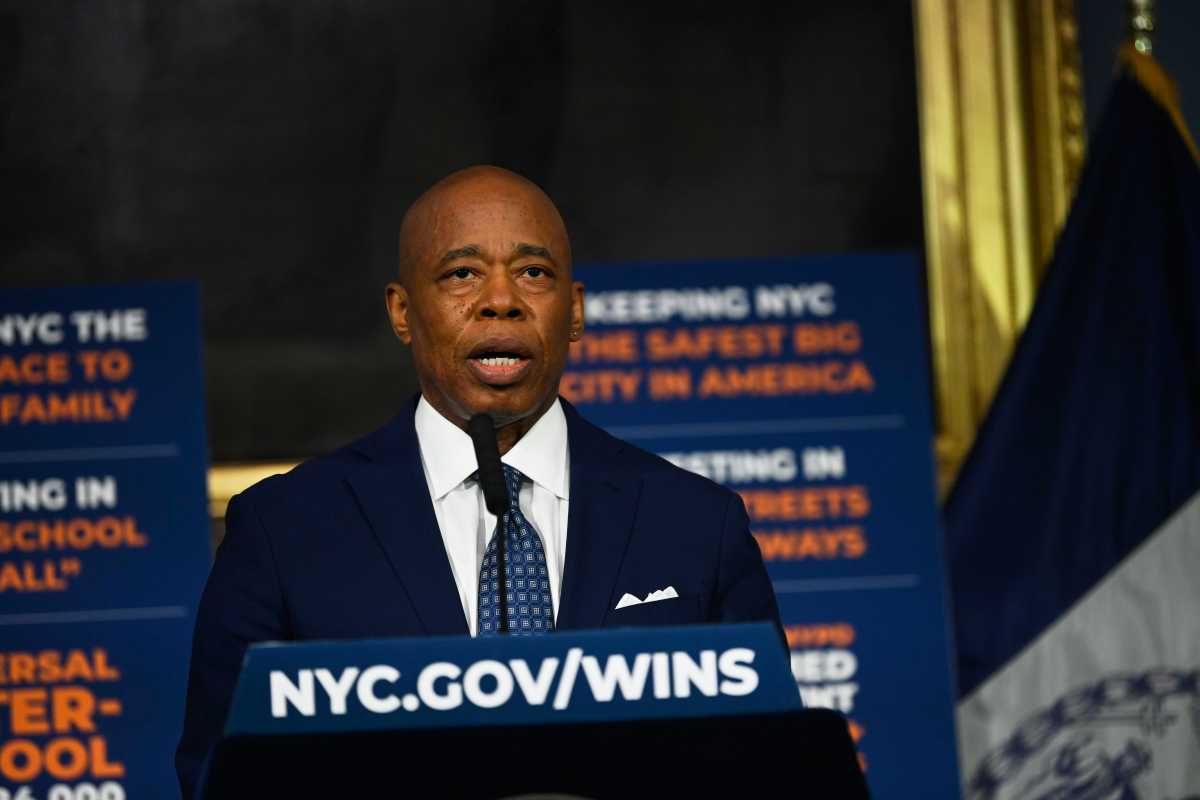Belated attention was paid Monday by the TV networks and The FCC chairman went to great lengths to stifle discussion prior to Monday’s On matters affecting big media’s financial interest, debate is becoming
big dailies to the Federal Communications Commission’s sellout of
the public interest in allowing still more mega-media consolidation. The
FCC’s action is likely to prove even a greater threat to both the
democratic ideal of unfettered discussion and the capitalist notion of
free commerce than Congress’ earlier media deregulation votes.
decision, scheduling only one public hearing (in California). Big media
didn’t raise much of a ruckus about this overt suppression of debate,
however, since it will be big media’s cash registers that will reap
a fast, full harvest.
an anachronism. It’s a shame the FCC commissioners have no shame.
Everybody needs to advertise. And almost everyone does — even I noticed a new campaign this week for Skin Cola — a non-carbonated, We used to run an ad-generating promotion that, updated, would be headlined, Merchants who don’t advertise may, at worst, meet a premature demise; Some say they don’t advertise, but that’s usually not true. You get your Brooklyn Paper each week because our advertisers use our
It’s all advertising
if they don’t realize it.
sugar-free drink. Now, if you’re going up against Pepsi and Coke,
you’ve got to advertise. But what about Coke and Pepsi — or
McDonalds and Burger King? Their brands are universally known and used,
yet they can’t seem to spend enough to keep their names in front
of our eyes and on our minds.
“The best reason to advertise in 2003 is 2004.”
at least, they will likely fail to maximize their potential.
If they utilize a public relations specialist, flood the media with freebees
or seed their markets with spin, that’s advertising — covert
advertising.
pages in an open and above-board manner to promote their goods and services.
When you patronize these advertisers, please tell them you saw their message
here, in your local Brooklyn Paper.
An old newspaper adage goes, “I don’t care what you say about I’d sometimes divine a new reporter’s accuracy quotient by hearing People are rightfully concerned that their names appear correctly in The It’s important for readers to call errors to our attention; even In the case of NY Times reporter Jayson Blair, who injected fiction in Now, here’s my oops of the week: In last week’s column, I misspelled
Getting it right
me in the newspaper — just spell my name right!”
the reporter ask for the spelling of a source’s first name. Marianne,
after all, could just as easily be Mary Ann.
Paper — particularly a name that won’t appear all that often;
a misspelled name can cloud those 15 minutes of fame and make a Google
search problematic for eternity. Most often, however, it’s the substance
of an article that will delight or rile.
if an error in nuance does not merit a printed correction, knowledge of
the questionable point can better inform future stories. A misspelled
name, not corrected, can literally take on an identity of its own.
dozens of his reports, people felt calling the Times to complain would
have been an exercise in futility. At The Brooklyn Paper, we want to hear
your praise as well as your criticism.
the name of The Paper’s early editor. It’s Beverly Cheuvront.
























